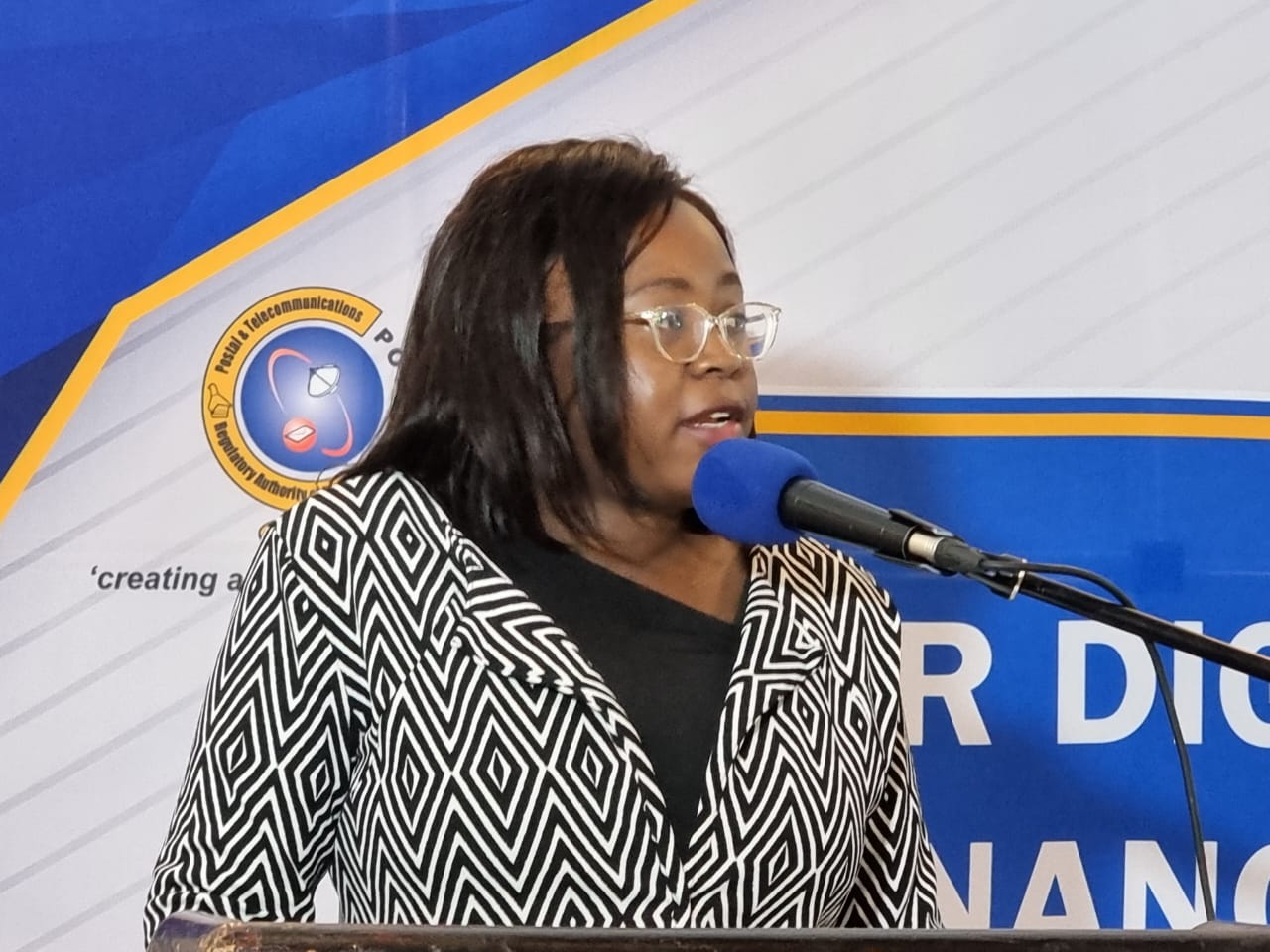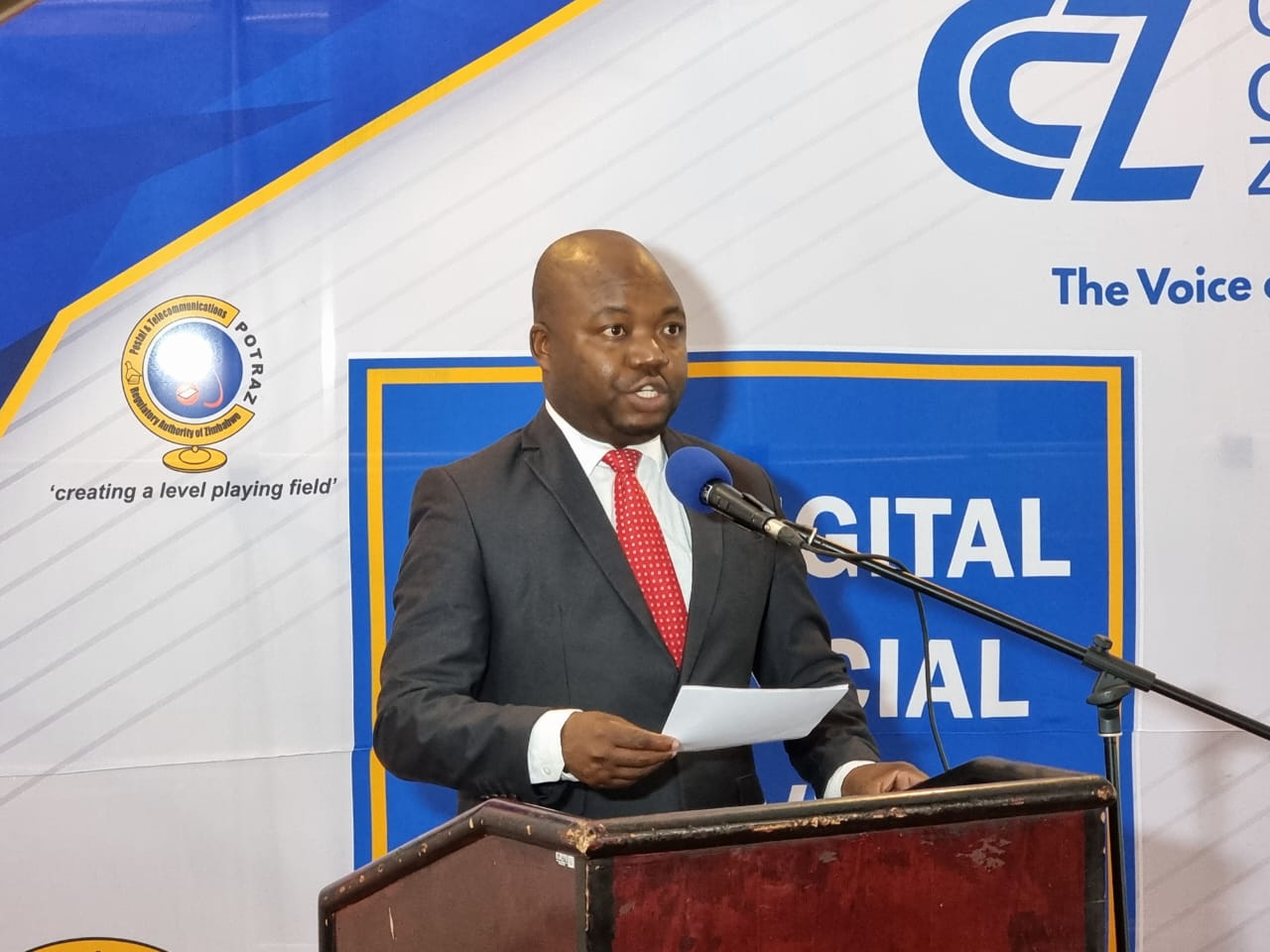|
Getting your Trinity Audio player ready…
|
Increased access to the digital economy strengthens digital protection, Dr. Jenfan Muswere, in a speech read on his behalf on the commemoration of World Consumer Rights Day today by his deputy in the same ministry, Dr. Dingumuzi Phuti has said.
He said digital technology has created unprecedented new opportunities for consumers as it facilitates communication; access to information, and of late is facilitating financial transactions.
He bemoaned the fact that globally, more than 2.5 billion adults (most of them in developing economies) do not have a formal bank account.
There are also low levels of financial inclusion that represent a barrier to socio-economic development in developing countries. Dr. Muswere said mobile money can be a game-changer for people of limited income and an enabler for financial inclusion in developing countries.
As indicated by a growing body of evidence, increasing the poor’s access to high-quality, affordable financial services will accelerate the well-being of households, communities, and economies in the developing world. Digital payment platforms are one of the most promising ways to deliver financial services to the poor profitably.
The recent growth of digital financial services has allowed millions of people who were otherwise excluded from the formal financial system to perform financial transactions relatively cheaply, securely, and reliably.
Thus digital financial services can expand the delivery of basic financial services to the poor through new technologies like mobile phones, electronic money, and new channels such as retail agents.
“Smartphones coupled with innovations in technologies such as Near Field Communications (NFC) and cloud computing are also changing the landscape of this field in both developed and developing economies. Innovation in digital financial services in developed countries provides examples of products, services and best practices that could find a meaningful and effective application to promote financial inclusion in emerging markets, particularly, when the use of such products and services is consolidated and standardized. From a public policy perspective, therefore, identifying the standardized frameworks needed to support the scaling up of Digital Financial Services has become increasingly important. Development of a regulatory process which may be used by Policymakers and Regulatory Authorities for scaling up Digital Financial Services uptake has also become increasingly important,” he said.
Rumbidzai Panavanhu, the Executive Officer for Competition and Reasearch from the Postal and Telecommunications Regulatory Authority (POTRAZ) said in Africa, digital payments are now, more than ever, the key to unlocking business growth and financial inclusion. Main types of digital payment instruments used in the African region are Mobile Wallets (commonly known as Mobile Money) and bank cards.

Digital Financial Services (DFS) refer to the broad range of financial services accessed and delivered through the internet, mobile phones (both smartphones and digital feature phones), ATMs, POS terminals, Near Field Communication (NFC)-enabled devices, chips, electronically enabled cards, biometric devices, tablets, and any other digital system. (Broadly referred to as digital channels).
Mobile Money is one of the most profound DFS; it’s a key digital driver to financial inclusion in Africa; far beyond what traditional banking channels have achieved.
It is a type of electronic money (E-Money) that is transmitted electronically using telecommunications networks and SIM-enabled devices, primarily mobile phones.
According to the Global System for Mobile Communications Association (GSMA)’s report on State of the Industry Report on Mobile Money 2021, there are 562 million mobile money accounts in Africa that account for USD492 billion of mobile money transaction values.
Panavanhu said the proliferation of mobile money in Zimbabwe has been a catalyst for the financial inclusion of millions of those previously underserved by traditional banks.
In 2021, Zimbabwe was ranked first in the SADC region, in terms of mobile money access and use, with over 6 million active subscriptions accounting for over ZWL200 billion monthly.
“A wide, robust, and resilient telecommunications network is the key pillar for access to DFS; Strides have been made to improve network population coverage over the years, with the proportion of the population covered by telecommunications networks improving,” Panavanhu said.
In 2016, the Postal and Telecommunications Regulatory Authority of Zimbabwe (POTRAZ) and the Reserve Bank of Zimbabwe (RBZ) collaboratively reviewed USSD charges to banks by mobile network operators, with the aim of coming up with a USSD pricing framework that promotes the uptake of mobile banking and overall financial inclusion.
The directive mandated the assignment of USSD to banks on a non-discriminatory basis, zero-rating of airtime-based mobile banking transactions, zero-rating of processes such as PIN Change, activation, and deactivation, levying of USSD transactions on complete transactions only and the implementation of volume-based pricing and the setting of a ceiling for USSD charges for mobile banking transactions of $0.05 per session.
Courage Mashavave, the Steward Bank Chief Executive Officer who represented the Bankers Association of Zimbabwe alluded to a number of ways to protect the consumer in the Fast-Changing World of Technologically driven financial services.
Below are some of the ways:
Customer Education
Educating customers on cyber-attacks through media (Radio, newspapers, and social media) will ensure that customers are aware of the growing threats. Customer Education will also be done to furnish the customer with knowledge of their consumer rights with regards to their access and use of digital financial services.
Consumer Data
This involves the implementation of a document management system and automated archiving that provides easy monitoring of who accesses customer data. It also limits the number of users that can access customer data.
AML and CFT
This pertains to investing in system modules such as the FCM module which easily detects suspicious transactions as well as training of staff on AML and CFT issues to counter possible threats.
Security enhancements
This involves the Frequent Internal Audit reviews on ICT Operations for system users and automation of backend manual process to minimise human error and fraud as well as Whistleblowing.
EMV Chip and Secure Cards
This means a shift from local Magstripe cards to EMV Chip and Secure cards that minimise card cloning which is more rampant on Magstripe cards. There is also 3D secure Authentication which is an extra layer of authentication besides the normal CCV verification.
Other initiatives – Best Practices
To continuously protect consumers, Banks need to employ the Best practices which are ever-changing with the evolving digital technologies. These include 2-factor pin authentications on Mobile Banking and Online Banking among other best practices.
Mashavave said banks should collaborate with the RBZ, FIU, Ministry of Finance and Economic Development & Deposit Protection Corporation to counter Cyberattacks that infringe customers. The RBZ supervises banking institutions, fosters stability, and proper functioning of the financial system.
He said with digital transformation comes the elimination of inefficiencies that propel cybercrime. Some of them include blockchain ensuring that data integrity is maintained through transparency. Automation of processes such as password verification, mobile banking and online banking registrations minimises possible breaches ensuring that customers have absolute autonomy of their passwords.
